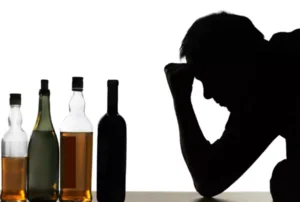Alcohol use: Weighing risks and benefits

Alcohol also irritates the stomach lining, leading to inflammation (gastritis), which can make you feel nauseated and throw up. Anyone with an alcohol dependency disorder who desires to stop drinking should seek professional medical care or a treatment center specializing in safe alcohol detoxification. Signs and symptoms of withdrawal generally occur between 4 and 72 hours after the last drink or after reducing intake. Of major concern is the number of young people who consume alcohol. Research suggests that 20 percent of college students meet the criteria for AUD, and the condition affects some 623,000 adolescents aged 12 to 17 years.
- Alcohol is one of the leading causes of death in the United States, contributing to approximately 178,000 deaths annually.
- This amount of alcohol will begin to reach toxic (poisonous) levels.
Content Licensing
Because denial is common, you may feel like you don’t have a problem with drinking. You might not recognize how much you drink or how many problems in your life are related to alcohol use. Listen to relatives, friends or co-workers when they ask you to examine your drinking habits or to seek help. Consider talking with someone who has had a problem with drinking but has stopped. Excessive alcohol use can harm people who drink and those around them.
Moderate and Excessive Drinking Defined
If you drink more than 12 units of alcohol, you’re at considerable risk of developing alcohol poisoning, particularly if you’re drinking many units over a short period of time. The short-term effects of alcohol develop quickly—within minutes after your consequences of alcohol first drink—impacting mood, coordination, speech, memory, and behavior. One of the best-known effects of drinking alcohol is lowered inhibitions. Alcohol disrupts the brain’s prefrontal cortex—the area responsible for judgment and self-control.
- Alcohol consumption irritates the lining of the stomach and intestines.
- The effects of alcohol on your health will depend on how much you drink.
- One of the best-known effects of drinking alcohol is lowered inhibitions.
A – 22 Effects of Gender on the Relationship between Coping Styles and Executive Functioning in Alcohol Use Disorders
While you may experience euphoria or relaxation at first, in the long run, alcohol affects neurotransmitters, which can lead to changes in your thoughts, moods, and behavior. A comprehensive 2015 review found that alcohol use is one of the leading contributors to pancreatitis because it causes the pancreas to produce toxic substances. While there is no one-size-fits-all method for recovering from AUD, there are lots of effective treatment options.

However, even a mild disorder can escalate and lead to serious problems, so early treatment is important. The connection between alcohol consumption and your digestive system might not seem immediately clear. The pancreas helps regulate how your body uses insulin and responds to glucose. https://ecosoberhouse.com/ If your pancreas and liver don’t function properly due to pancreatitis or liver disease, you could experience low blood sugar, or hypoglycemia. But more recent research suggests there’s really no “safe” amount of alcohol since even moderate drinking can negatively impact brain health.


- While alcohol can initially boost your mood, these effects are temporary and wear off quickly.
- This disorder also involves having to drink more to get the same effect or having withdrawal symptoms when you rapidly decrease or stop drinking.
- Alcohol use can also lead to more lasting concerns that extend beyond your own mood and health.
- In some people, the initial reaction may feel like an increase in energy.




Leave a Reply